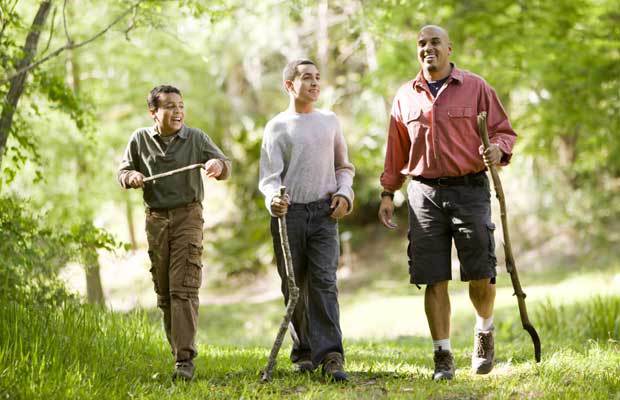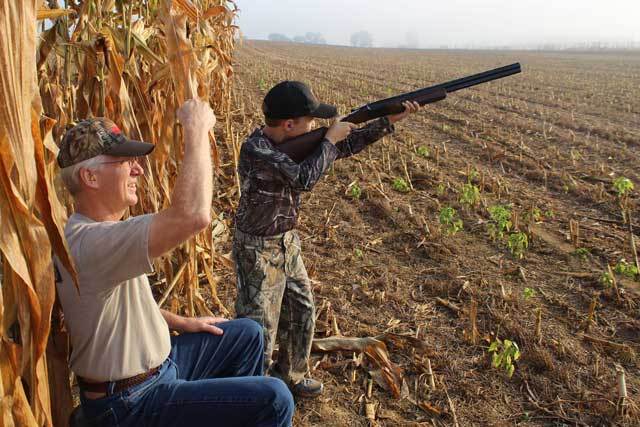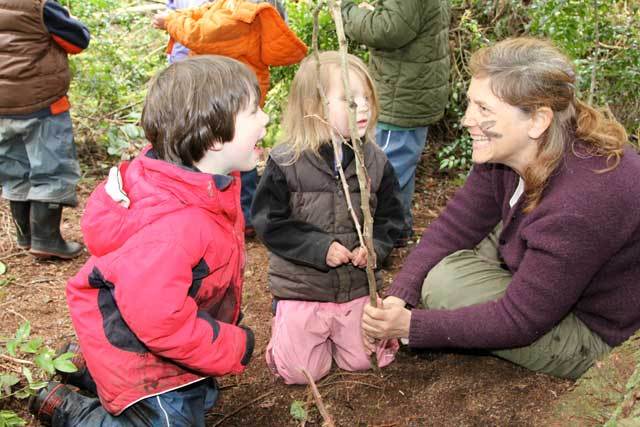
Teaching children to care about and understand the need for disaster preparedness and the development of survival skills is a complex task. First, one must maintain an understanding of the emotional maturity, attention span, and worldly understanding of the child with whom they are dealing. Then, they must tailor their instruction and expectations to that. In addition to this, it is important to engage a child on these topics in a way that they enjoy and that is interesting to them. Here are ten suggestions that might be helpful to parents or other adults who are attempting to tackle the job of introducing kids to the concepts and skills of preparedness and survival.
Incorporate Lessons into Daily Life.
It does not matter what the topic is, children learn skills and concepts best, when two things happen. The first is that they are allowed to learn and incorporate skills gradually. The second is that they see an immediate practical usefulness for these skills. The best way to accomplish this is to avoid introducing kids to huge concepts about preparedness, but to instead teach them small yet useful skills that you can build on later. This could be as simple as teaching a child how to sort food scraps for composting, or giving them the job of checking the deep freeze and pantry on a daily basis in order to determine which items need to be restocked.
Make the Child Understand that He or She Has an Important Role to Play
Nothing is less motivating to a child than giving him or her meaningless busy work. It can be tempting to give a child busy work to keep him/her out of the adults’ hair, but the long-term results of doing this are never positive. Even the least savvy child will eventually figure things out. Teaching a child new skills is a messy process that is never easy. Parents need to understand that children are going to make mistakes and that they are going to have to help clean up the resulting messes. That shouldn’t stop parents from giving important jobs to children. In fact, kids need to understand that they play an important part in things, and that the tasks they perform are meaningful. So, if you are engaged in some prepping project, make sure your child feels that s/he is truly contributing.
Make Sure that Kids See the Fruits of Their Labor
Food production and storage is a key component of successful preparedness. Many parents make the mistake of giving their children individual jobs to do when it comes to these tasks, but they fail to make sure the children have an understanding of the entire process. For example, it only takes a few moments to show a child a jar of canned tomatoes in the pantry, and then explain to that child how that jar of tomatoes came from a plant he helped put into the ground a year ago. From there, the parent can explain to the child that their jar of tomatoes along with all of the other jars of canned goods will help feed the family for a few long time. They can also explain that even if a disaster were to make getting to the store impossible, the family could stay healthy eating the food that they have stored.
Let your child know they have an important role to play.
Encourage Older Kids to Teach and Mentor Younger Kids
One great way to reinforce a skill is to have a child teach that skill to somebody else. When children demonstrate and explain a survival skill to a younger friend or sibling, they gain self-confidence and a new understanding of what they are doing and why they are doing it. If the child who is doing the teaching needs to work on a skill repetitively, teaching that skill to others gives him/her the opportunity to repeat the work themselves without it feeling like drudgery or punishment. Of course, the younger children also benefit. They get attention from an older friend or sibling that kids often crave, and they probably have more fun than they would if they were learning from boring old mom and dad.
Go Camping!
Roughing it is a great way to teach kids outdoorsman ship skills that they may need to use in emergency situations down the road. Make it fun! Create a check list of skills each kid should learn and demonstrate, and then offer a reward and lots of praise when they succeed. After the child has met his or her goals, mom or dad can opt to tell them how the skills they have learned might be valuable in a situation where disaster or other tragedy has struck.

There are so many skills you can teach your children that could be useful in an emergency.
Take the Children Grocery Shopping
The family’s weekly, bi-weekly or monthly trip to the grocery store is a great opportunity to educate children about purchasing, storing, and rotating paper goods, dry goods, food, and other supplies. During these trips, parents can introduce their children to the butcher, military surplus store owner, and other members of the community that they can utilize when they eventually want to stock up their own reserves. When they are finished helping with the shopping, children can be taught how to sort the groceries into items that are to be used immediately, items to be saved for use in a few months, and items that are stockpiled in the event of a true emergency.
Make it Age Appropriate
There are many reasons that family make survival learning and preparedness a priority. Some of these reasons can be hard to understand for younger children. They can also be frightening. Parents should use their best judgment when determining what children should be exposed to. It may help to remember that many of the skills that are needed for children to become survivalists can be taught in ways that are enjoyable and that don’t cause children undo alarm. Parents can wait to tell their children the reasons why they are learning these skills until they are older and better prepared.
At the end of the day, there are no magic formulas for preparing kids for the future or for unknown crises or disaster. It just takes common sense, patience, and mentoring.






















